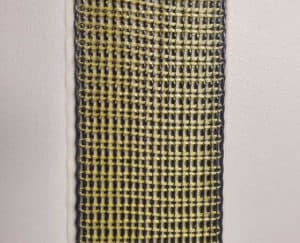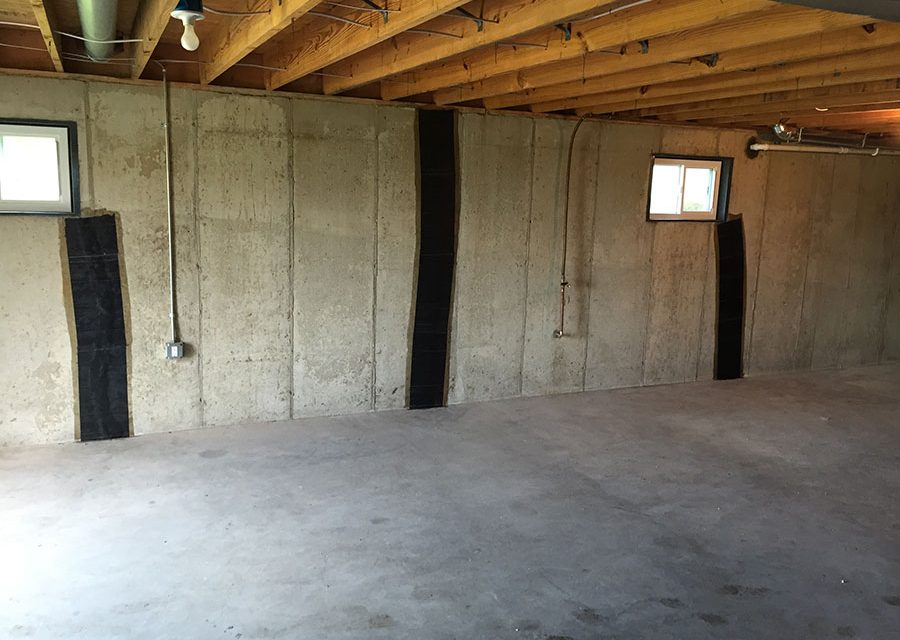Carbon Armor Straps
Carbon Fiber straps, the good, the bad and why the good options are better.
If your walls are cracked and bowing there are solutions other than completely tearing them apart and starting a whole new foundation. A very efficient method to fix them is Carbon Fiber Straps. Carbon fiber needs an extremely large amount of force to tear it apart – it needs so much, in fact, that it’s almost impossible to. This makes it the perfect method for keeping a wall in place, provided the straps are installed properly, and that they are the right kind of Carbon Armor strap.
Yes, there are carbon armor straps that are not great to use on your shifting walls. One of those are Laminate carbon armor. While these are very strong – they are hard to conform well to a bowing wall and can even pop off at the bottom and top of a wall during installation. Additionally, the epoxy used to adhere the system to the wall is so thick that it does not penetrate deeply into the pores of the concrete, limiting the strength of the system.

Meanwhile, grid systems tend to consist of woven carbon fibers – which are much weaker than laminate straps.

Finally there are fabric-like Carbon fiber products that contour tightly against the wall, but typically need to be about 25 inches wide in order to match the strength of a laminate product. Not pretty.

CarbonArmor on the other hand, uses carbon fiber-reinforced polymers (CFRPs), a type of carbon fibers that is 10 times stronger than steel, tension wise, and designed for basement walls. CarbonArmor has that nice fabric-like quality that makes it flexible enough to contour against your walls this is important because it aids strong adhesion between the carbon fiber fabric and the concrete wall itself. It’s especially important when walls have been cracked or moved. The two-part epoxy is another feature that sets the CarbonArmor system apart because it actually penetrates through the concrete surface, where other strap adhesives fail – it creates that strong bond needed to hold structurally compromised walls together.

Another thing that makes CarbonArmor unique is that it can be installed with the ArmorLock system. ArmorLock provides additional tipping resistance as its straps overlap with the CarbonArmor at the top of the wall and extend tension reinforcement to the ArmorLock bracket on the rim joist and sill plate. CarbonArmor stabilizes the walls, while ArmorLock provides the necessary support from top-of-wall connections. This means, your wall is supported fromn top to bottom – as it should be to effectively prevent any more leaning.
If you have leaning walls, give the Foundation Guys a call to find out more about CarbonArmor and ArmorLock systems.

